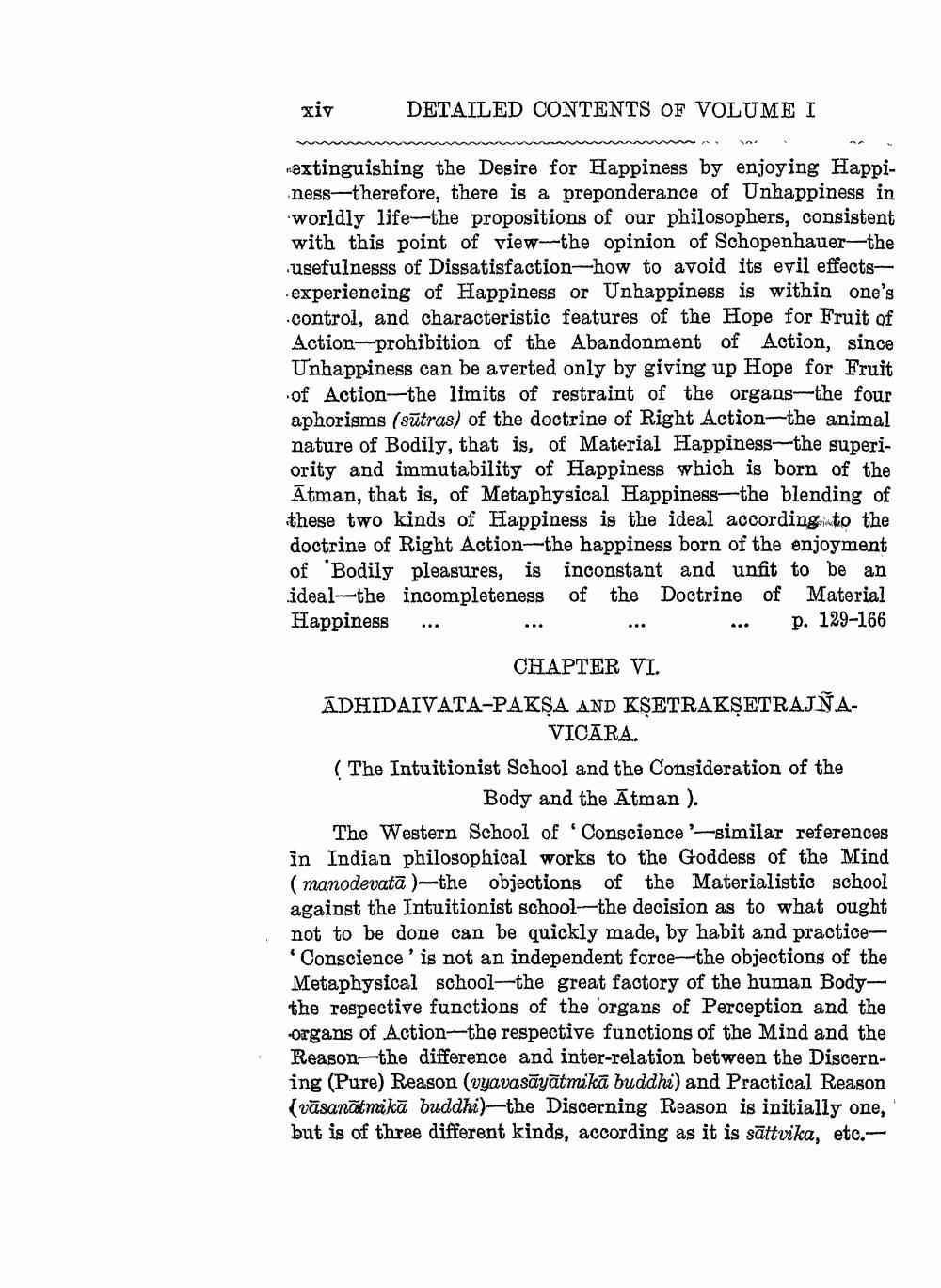________________
xiv
DETAILED CONTENTS OF VOLUME I
rextinguishing the Desire for Happiness by enjoying Happiness—therefore, there is a preponderance of Unhappiness in worldly life--the propositions of our philosophers, consistent with this point of view-the opinion of Schopenhauer-the usefulnesss of Dissatisfaction-how to avoid its evil effectsexperiencing of Happiness or Unhappiness is within one's .control, and characteristic features of the Hope for Fruit of Action--prohibition of the Abandonment of Action, since Unhappiness can be averted only by giving up Hope for Fruit of Action-the limits of restraint of the organs--the four aphorisms (sūtras) of the doctrine of Right Action--the animal nature of Bodily, that is, of Material Happiness--the superiority and immutability of Happiness which is born of the Ātman, that is, of Metaphysical Happiness-the blending of these two kinds of Happiness is the ideal according to the doctrine of Right Action-the happiness born of the enjoyment of 'Bodily pleasures, is inconstant and unfit to be an ideal--the incompleteness of the Doctrine of Material Happiness
... p. 129-166
CHAPTER VI. ADHIDAIVATA-PAKŞA AND KȘETRAKŞETRAJÑA
VICĀRA. (The Intuitionist School and the Consideration of the
Body and the Ātman ). The Western School of Conscience'-similar references in Indian philosophical works to the Goddess of the Mind ( manodevata )-the objections of the Materialistic school against the Intuitionist school-the decision as to what ought not to be done can be quickly made, by habit and practice 'Conscience' is not an independent force--the objections of the Metaphysical school-the great factory of the human Bodythe respective functions of the organs of Perception and the organs of Action-the respective functions of the Mind and the Reason-the difference and inter-relation between the Discerning (Pure) Reason (vyavasāyātmikā buddhi) and Practical Reason (vāsanātmikā buddhi)—the Discerning Reason is initially one, but is of three different kinds, according as it is sättvika, etc.




